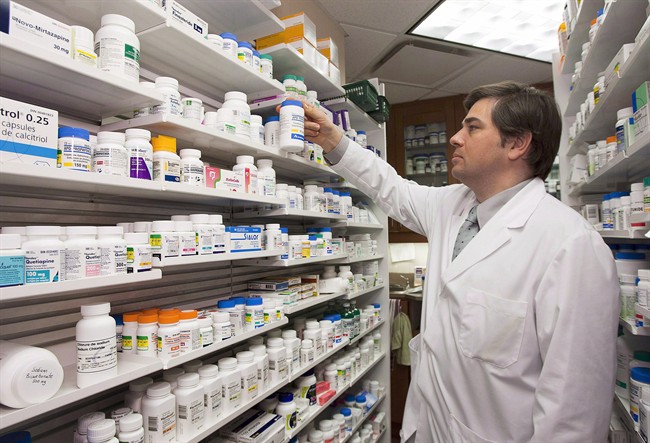A new report by the Canadian Federation of Nurses Unions estimates that hundreds of Canadians die every year because they are unable to afford their prescription medication.

The report estimates that a lack of prescription drug coverage contributes annually to:
- 370-640 premature deaths due to ischemic heart disease
- 270-420 premature deaths of working-age Canadians with diabetes
- 550-670 premature deaths from all causes among working-age Canadians
Because these groups may overlap, the researchers caution that the numbers can’t be added together to come up with a total.
“We’ve known for years that Canada’s system of prescription drug coverage is inefficient and ineffective,” said Linda Silas, president of the federation, in a press release.
“Now we know that our system is also costing lives each and every day, while worsening the health of tens of thousands every year.”
It’s hard to find direct measures of the effects of pharmacare in Canada, said Dr. Ruth Lopert, one of the report’s authors. “It’s always better to have direct measurement, but that can take years and it’s not been done.”
“We’re not suggesting for a moment that these numbers are precise. They’re estimates.”
- Naloxone-resistant street drug linked to 9 deaths in Eastern Canada seized in Alberta
- ‘She gets to be 10’: Ontario child’s heart donated to girl the same age
- Buzz kill? Gen Z less interested in coffee than older Canadians, survey shows
- Bird flu risk to humans an ‘enormous concern,’ WHO says. Here’s what to know
Generally, the estimates are sound, said Dr. Nav Persaud, an assistant professor of family and community medicine at the University of Toronto.
“Overall I think the estimates are reasonable, but they may differ a little in terms of how sturdy they are,” he said.
Researchers may have over-estimated deaths due to diabetes, he thinks, but generally, the numbers are quite conservative and could be lower than the actual totals.
“It’s impossible to say for sure how many people are dying because of poor access to medicine,” he said.
“The best way to determine it would be to start publicly-funded access to medicines and then measure the effect, but given that that cannot be done on a large scale, we have to look at indirect comparisons, like they’ve done in this report.”
Although there have been many studies looking at the economic costs of pharmacare, including his own, Persaud says it’s important to note the human costs of not having universal access to medication.
“It’s disturbing to think about how many lives could have been saved if this policy was changed 40 years ago. It’s definitely going to be in the tens of thousands.”
Lopert hopes that her research shows people the urgency of the problem. “I think one of the messages is, this is not a one-off. This is every year.”
She hopes that the numbers bolster the case for universal drug coverage.
“Access to medications can be the difference between life or death,” Persaud said. “The most crucial thing to consider is how many people will die between now and the time that we do get publicly-funded access to medicines.”




Comments